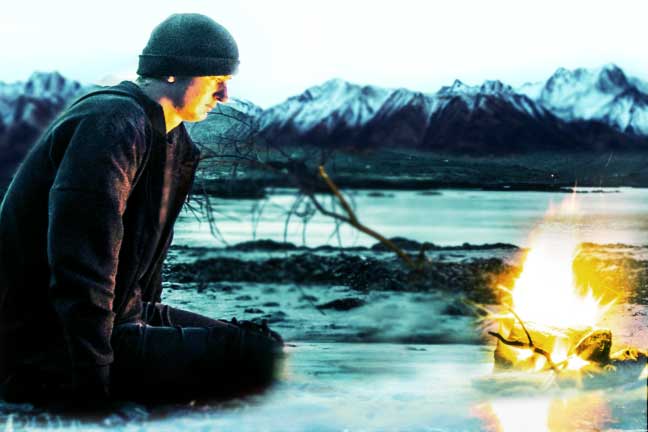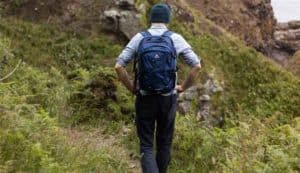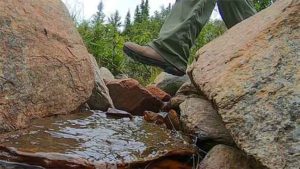

Editor & Article Writer for Outdoor Wilds
Cold Weather Wilderness Survival Tips
One of my worst fears is getting lost in the cold without help. When hiking, camping, or even driving, it’s possible to get lost, stranded, or stuck. If the temperatures are freezing, survival becomes more of a challenge.
However, proper planning allows you to prepare yourself for these emergencies.
Use the following cold weather wilderness survival tips to ensure that you stay warm, survive, and find your way back to civilization.
Always Dress in Multiple Layers
While dressing in multiple layers seems to be a simple cold weather survival tip, it’s easy to overlook.
Keep in mind that you may not need to layer up when you start your trip. You can pack extra clothing and blankets in your pack.
I’ve found that the best way to stay warm when traveling in the cold is to wear long johns. Full-body, knitted underwear helps keep your upper and lower body warmer and doesn’t restrict your movement.
While it’s important to bundle up with multiple layers, you also need to ensure that your head and ears are covered.
Always bring thick, warm gloves. Leather gloves are recommended as they are easier to dry if they get soaked compared to nylon gloves with padding.
Carry an Emergency Blanket
If you have room in your pack, I also suggest that you bring an emergency blanket. These small blankets are typically sold in small pouches that take up hardly any space. When unfolded, they have reflective material that helps keep you warm.
The reflective material can also be used to create a signal to flag down others if you see help in the distance.
Heated clothing such as heated socks are ideal to keep your toes warm for a number of hours if you’re stuck somewhere when a vehicle has broken down or you’re hiking in extreme cold conditions.
Keep Yourself Active to Stay Warm
Sitting and waiting for someone to find you may not be the best option when you’re freezing. You should get up and remain active. Movement helps increase blood circulation and warms your body.
Activity may also help keep you distracted instead of worrying about whether you’ll make it out alive. Use this time wisely. You can search the area for food or water, chop extra firewood, or prepare more kindling.
Build a Shelter
It’s also a good idea to start preparing a shelter if you think that you’ll be stuck overnight. While an emergency blanket may help keep you warm, you may need additional protection from the wind.
You can use tree branches to create a shelter or include a compact one-person pop-up tent in your gear.
Always Bring a Fire Starter Kit
Fire may save your life when you’re stuck out in the cold. I never head into the wilderness without a fire starter kit even in warmer weather.
A fire not only keeps you warm but it also provides a source for boiling water and preparing food. You can also use your fire to make water from snow. Simply place a handful of snow in a container and hold above the fire until melted.
Practice Fire Making
I always recommend practicing your fire-starting techniques. Reading about how to start a fire is a lot different compared to starting a real fire. You may even want to pack several types of fire starters and extra kindling.
Bring Enough Food for at Least Three Days
You’re going to need to eat to maintain enough energy to stay alive and keep from freezing. Moving around to stay warm burns calories, which you need to replenish with food.
When hiking, hunting, or spending time outdoors, pack enough food for at least three days even if you only plan to be gone for a short day hike.
I prefer to bring a mixture of dry foods that I can eat without cooking. However, I also pack a few MREs (Meal, Ready to Eat) that I can heat up over a fire.
Never Leave Home Without a Survival Kit
You can ensure that you follow at least a few of these tips by packing a survival kit and never leaving home without it.
Your survival kit can include a fire starter kit, food, compass, metal cooking pot, emergency blankets, and other useful items.
Inform others of your plans
In the end, you may need to rely on yourself to find your way to safety. However, you should also ensure that you let someone know about your travel plans.
I always tell at least one other person when I’m leaving, when I’ll get back, and where I’m going. If I don’t come back by the time I mentioned, the person can contact the necessary authorities to mount a search of the area.
Popular Posts










